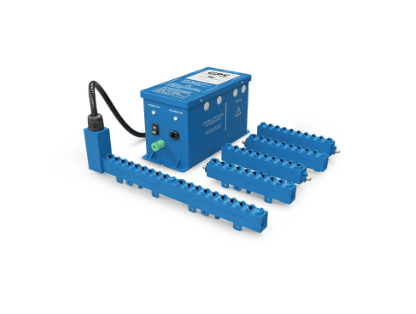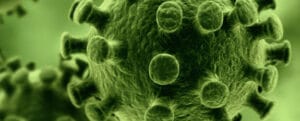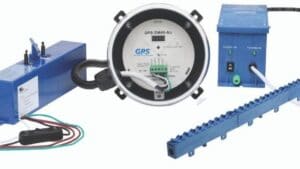In the past few years, air quality experts and health professionals have discovered that indoor air pollution can be as harmful to our health as outdoor contaminants. And one of the ideal ways to improve indoor air quality is through needlepoint bipolar ionization. But what this technology means, and how does it work?
In this post, we will explore needlepoint bipolar ionization and how it can help improve indoor air quality. We will also touch on the benefits of this technology so that you can make an informed decision.
What is Needlepoint Bipolar Ionization?
Needlepoint bipolar ionization (NBI) is a type of indoor air purification technology that uses ions to remove contaminants from the air. This technology helps to improve indoor air quality by reducing pollutants such as dust, pollen, mold, viruses, bacteria, and VOCs (volatile organic compounds). And also the best part, it does not produce any ozone!
So, if you are looking for an effective way to improve indoor air quality, needlepoint bipolar ionization may be a good option for you.
How does Needlepoint Bipolar Ionization work?
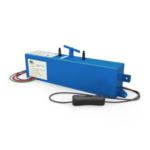 Needlepoint bipolar ionization (NPBI) is an air purification technology that uses needle-like probes to emit positive and negative ions into the air. These ions then airborne particles, such as dust and viruses. The positively or negatively charged particles are then attracted to oppositely charged collector plates within the unit, where they are removed from the air stream and collected.
Needlepoint bipolar ionization (NPBI) is an air purification technology that uses needle-like probes to emit positive and negative ions into the air. These ions then airborne particles, such as dust and viruses. The positively or negatively charged particles are then attracted to oppositely charged collector plates within the unit, where they are removed from the air stream and collected.
Basically, NPBI units are designed to be installed in HVAC systems so that the clean air they produce can be circulated throughout a building. This makes them an ideal unit to improve indoor air quality in large spaces like office buildings, schools, hospitals, and hotels.
Now that you know how needlepoint bipolar ionization works let’s explore some of the benefits of this technology.
Benefits of Needlepoint Bipolar Ionization
There are many benefits of needlepoint bipolar ionization, including:- Reduced contaminants: NPBI has been shown to reduce a wide variety of airborne contaminants, including bacteria, viruses, mold spores, dust, and pollen.
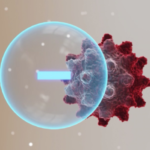 Improved air quality: By reducing the levels of contaminants in the air, needlepoint bipolar ionization can help to improve indoor air quality. This is especially helpful for people who have allergies or respiratory complexities.
Improved air quality: By reducing the levels of contaminants in the air, needlepoint bipolar ionization can help to improve indoor air quality. This is especially helpful for people who have allergies or respiratory complexities.- No ozone production: Unlike some other air purification technologies, NPBI does not produce ozone. This makes it a safe and effective option for improving indoor air quality. Furthermore, the lack of ozone production means that NPBI units can be used in occupied spaces without causing any discomfort.
- Energy efficient: NPBI units are designed to be energy efficient and have a small footprint. This makes them a great option for commercial and industrial applications.
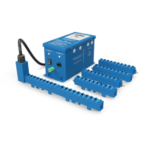 Long lifespan: With proper maintenance, NPBI units can last for many years. This makes them a cost-effective option for improving indoor air quality.
Long lifespan: With proper maintenance, NPBI units can last for many years. This makes them a cost-effective option for improving indoor air quality.- Helps to reduce VOCs: Needlepoint bipolar ionization can also help to reduce levels of volatile organic compounds (VOCs) in the air. VOCs are simply chemicals that are released into the air from products like cleaning supplies, paint, and adhesives.
- Improved HVAC efficiency: By reducing the levels of contaminants in the air, needlepoint bipolar ionization can help to improve the efficiency of your HVAC system. This signifies that you may be able to save a lot on your energy bills!
The Ending Note
Therefore, it is clear that Needlepoint bipolar ionization is the best choice for those who are looking for an effective way to improve indoor air quality. This technology is safe and efficient. So, if you want to breathe easier and improve your overall health, consider investing in a needlepoint bipolar ionization unit!
Address
7200 Distribution Dr, Louisville, KY 40258Phone: (502) 384-8500 Email: ACS.receptionist@AllianceComfortSys.com
Opening Hours
| Monday | 9:00 a.m. – 5:00 p.m. |
| Tuesday | 9:00 a.m. – 5:00 p.m. |
| Wednesday | 9:00 a.m. – 5:00 p.m. |
| Thursday | 9:00 a.m. – 5:00 p.m. |
| Friday | 9:00 a.m. – 5:00 p.m. |
| Saturday | Closed |
| Sunday | Closed |

